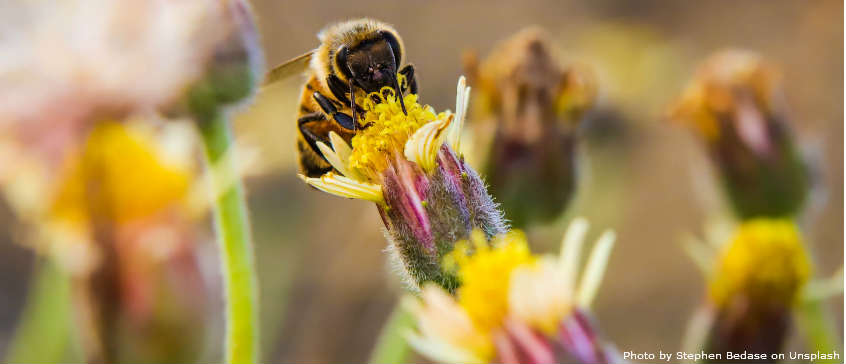Home / Science and the Environment / BLOOM – Local project establishes pollinator habitats
BLOOM – Local project establishes pollinator habitats

Inspired by her work with the RNS program, Tamara Batory has initiated a pollinator garden project for her neighborhood block in the Oaklands community of Victoria, BC. Christened “BLOOM” (Biodiverse Lang street On Oaklands Map), the project will be undertaken by neighbours, with the goal of establishing a series of habitats that form a pollinator corridor through the boulevards along the block. It has two purposes: to engage with neighbours and to provide food, shelter and other resources for pollinators as they move through the city.
According to Tamara, the gardens will be planted with native species, and each will have one or two plants that are associated with a specific insect such as butterflies, native bees, hoverflies, etc.:
"We intend to have information signs at each of the gardens that describe that particular insect, what it likes and what it needs for its life cycle, whether it is exposed ground for mining bees or the type of leaves that leaf cutter bees can use for their nests, so that people can start recognizing these insects when they come into their gardens. I find that because people are generally unfamiliar with insects, they can associate anything striped, for example, as a ‘bad’ insect and want to kill it, instead of watching what it does and letting it be.”
She has further visions of the project as a learning hub for children and a focal point for community:
“We’d like it to be a place where school children can come for a field trip and walk along the block, maybe with a ‘passport’ that we can stamp at each of the gardens that they visit, which can show that they have learned even a little bit about that particular pollinator, so each of the stamps might have a different insect on it. We’d also like to host an event during Pollinator Week similar to what the Yates St. community garden did last year so that we can get into it more fully.”
With grant support from the Victoria Foundation and planning advice from Saanich Native Plants, Tamara’s project aims to make positive changes that will benefit the environment: “I think we need to acknowledge why insect species are in decline and how cities can be really tough on them, but instead of having a negative feel, we can demonstrate how easy it can be to be proactive and not let them decline even further and perhaps encourage other blocks to do the same, to make a real network.”
- Posted June 26, 2019
RELATED TOPICS: Ecological RestorationHorticulture and Nature
Visit Registration
2nd Floor | Continuing Studies Building University of Victoria Campus 3800 Finnerty Road | Victoria BC | CanadaTel 250-472-4747 | Email uvcsreg@uvic.ca
2025 © Continuing Studies at UVic
Legal Notices |
Sitemap

